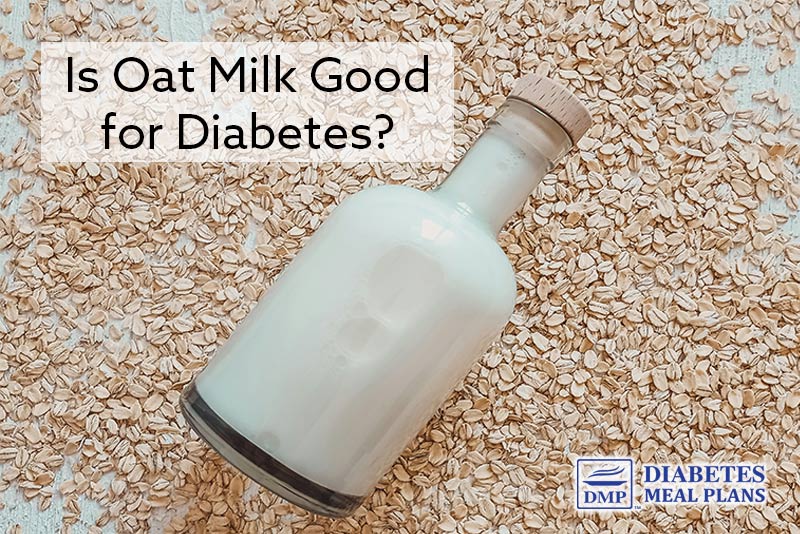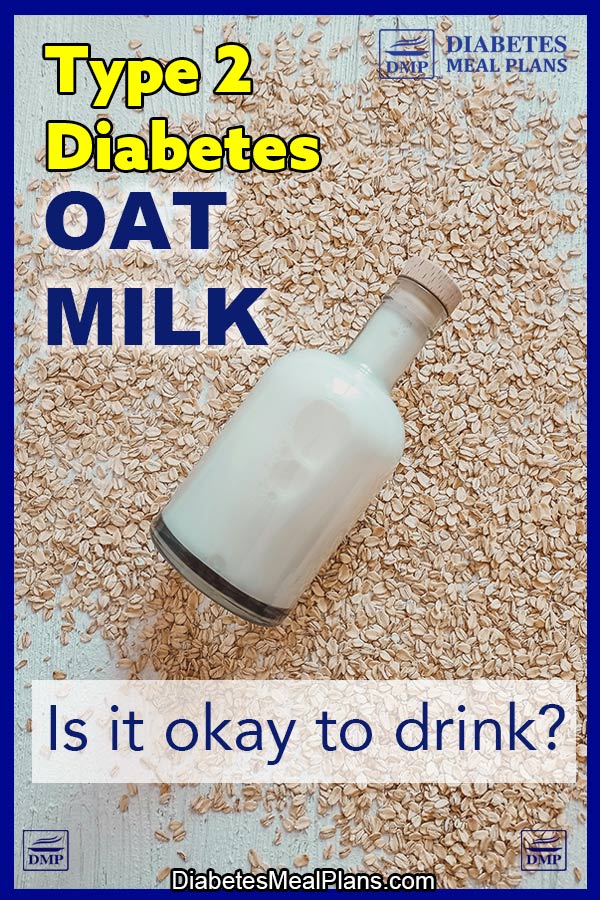When it comes to managing type 2 diabetes and prediabetes effectively, the choices made in your daily diet can have profound impacts on your health outcomes. And this is not just for foods but the drinks you choose as well.
Today, let’s talk about oat milk, a dairy milk alternative that has become more popular in recent times.
Specifically, let’s explore whether oat milk is a suitable choice for people with diabetes.

Understanding Oat Milk
Oat milk is made by blending oats with water and then straining out the solid material.
The result is a creamy liquid that’s often fortified with vitamins and minerals such as calcium, vitamin D, and riboflavin.
It’s loved for its rich sweetish flavor, making it a popular choice for coffees, smoothies, and cereal. But what about its nutrition facts?
Nutritional Profile of Oat Milk
Oat milk’s nutritional content can vary significantly depending on the brand and whether it’s fortified.
Generally, it’s higher in carbohydrates and calories compared to almond milk but lower compared to cow’s milk.
Take a look at the table below comparing the general nutrition facts for a variety of milk options, per 3.5oz/100ml:
| Nutrient | Oat Milk | Almond Milk | Cow’s Milk (Whole) |
|---|---|---|---|
| Calories (per 3.5oz/100ml) | 50 | 17 | 61 |
| Carbohydrates (g) | 9.4 | 0.6 | 4.8 |
| Sugars (g) | 4.1 | 0.1 | 4.8 |
| Protein (g) | 1.0 | 0.5 | 3.2 |
| Fat (g) | 1.4 | 1.5 | 3.3 |
| Dietary Fiber (g) | 0.8 | 0.3 | 0.0 |
One of the downfalls of oat milk is the carbohydrates in oat milk are primarily in the form of sugars, which does not really contribute to a diabetes-friendly diet.
The Oat Milk Carbohydrate Factor
With type 2 diabetes and prediabetes we recommend a low carbohydrate approach, keeping daily carb intake between 50-100g per day.
A cup of commercial oat milk can contain around 16-24 grams of carbohydrates, with a notable portion from sugars. This represents a substantial portion of the daily carb budget, especially when consumed in larger quantities or as part of meals with other carb sources.
We would not recommend oat milk as a good option, unfortunately, as it is really just too high in carbs!
Let’s say you like drinking a Starbucks latte, served with regular milk it is 19g carbs. Served with oat milk it is 30g carbs – that’s a lot!
As we said above, keeping daily carb intake between 50-100g per day will help you achieve lower blood sugar and A1c. And per meal we recommend a maximum of 25g carbs, so drinking oat milk doesn’t fit into a blood sugar friendly plan.

Oat Milk Glycemic Impact
The glycemic index (GI) is a measure of how quickly foods raise blood sugar levels. Foods with a high GI can lead to more significant blood sugar spikes, so with diabetes you do want to choose low GI options.
Oat milk’s GI varies from 49-69, which is a medium to high GI. It’s typically higher than many other milks, for example cows milk is a low GI of 30 and soy milk is low at 20-40 GI.
Milk Alternatives for Oat Milk
The search for milk alternatives often stems from various needs such as lactose intolerance, dietary restrictions, or simply a preference for plant-based options.
Since oat milk is not recommended, here are some alternative options.
Almond Milk (Unsweetened): With its significantly lower carbohydrate and sugar content, unsweetened almond milk is a great alternative for keeping your carb intake aligned with blood sugar-lowering goals. It’s also low in calories and can provide a good source of vitamin E, a powerful antioxidant.
Soy Milk (Unsweetened): Soy milk presents a balanced nutritional profile with a moderate amount of carbohydrates, higher protein content compared to most plant-based milks, and essential fatty acids. Its lower glycemic index makes it a favorable option for maintaining stable blood sugar levels.
Coconut Milk (Unsweetened, Carton): Often found in the refrigerated section in cartons (not to be confused with the thicker, canned variety used in cooking), this milk alternative is low in carbs and sugars.
Flaxseed Milk (Unsweetened): Flaxseed milk is another lower carb option, rich in omega-3 fatty acids, which are beneficial for heart health. It’s also a good source of plant-based protein and can be fortified with vitamins and minerals.
By considering unsweetened options with lower carbohydrate and sugar content, you can enjoy the creamy texture and flavor enhancement milk alternatives offer, without compromising your diabetes management plan.
Conclusion: Is Oat Milk Good for Diabetics?
Oat milk is a higher carbohydrate milk choice, with a medium-to-high glycemic index, so due to its potential to negatively impact blood sugar levels, we don’t recommend oat milk as a good option for diabetics.
If you prefer plant-based milks or need to eat them due to dietary restrictions or allergies, consider choosing one of the unsweetened milk options listed above – almond, soy, coconut or flaxseed.

Mary Hennicke
Thank you so much for the information. I will switch to a healthier option. I appreciate you.
Mary